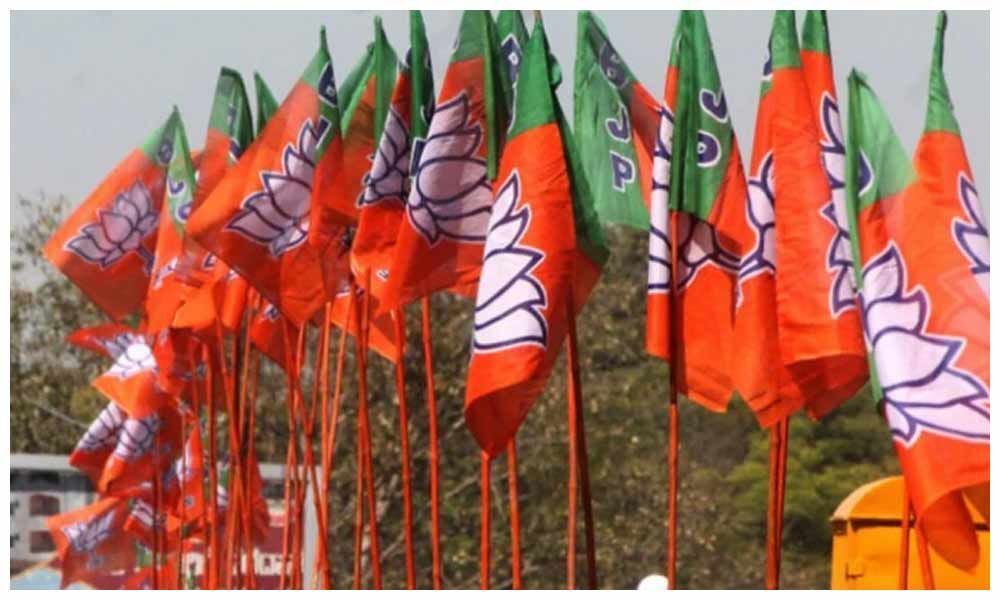Live
- Constitution Day 2024: Year-Long Celebrations Kick Off with President’s Address
- MUDA case: K'taka HC adjourns hearing of plea for CBI probe to Dec 10
- AP High Court adjourns hearing on Ram Gopal Varma's anticipatory bail petitions
- Russian Cosmonauts Respond to Unusual Odor on the ISS
- Bangladesh court rejects bail plea of Hindu priest Chinmoy Krishna Das, sends him to jail
- President Murmu Marks 75 Years of Indian Constitution with Commemorative Coin and Stamp
- Three dead in sofa manufacturing factory fire in Greater Noida
- Actor Sri Tej Accused of Cheating by Woman
- Constitution Day 2024: Celebrating India's Foundational Document
- 'When you lose, EVMs are tampered with; when you win, EVMs are fine', SC dismisses PIL
Just In
Behind the scenes: How BJP got upper hand in Parliament


The BJP government proposed the resolution to revoke Article 370 in the Rajya Sabha on Monday, but it was over three months ago that the party started preparations to ensure smooth passage of the legislations in the Upper House. The responsibility for ensuring this was given to several senior leaders considered close to party chief Amit Shah, said sources.
New Delhi, Aug 10 (IANS) The BJP government proposed the resolution to revoke Article 370 in the Rajya Sabha on Monday, but it was over three months ago that the party started preparations to ensure smooth passage of the legislations in the Upper House. The responsibility for ensuring this was given to several senior leaders considered close to party chief Amit Shah, said sources.
A senior Bharatiya Janata Party (BJP) leader related to the development told IANS: "There were many ambitious Bills that the BJP wanted to pass in its first term (Modi 1.0 government). But due to a lack of majority in the Upper House it could not be passsed."
The party leader said referring to the Triple Talaq Bill, which got stuck in Rajya Sabha as the NDA did not have a majority in the House.
Thus, keeping in mind the numbers in the Upper House, a strategy was made to convince the top leadership of the opposition parties like Biju Janata Dal (BJD), Telangana Rashtra Samiti (TRS), YSR Congress Party (YSRCP) and the AIADMK to vote on the side of the government.
Among the top leaders who were part of this project were Dharmendra Pradhan, who hails from Odisha, Piyush Goyal, who was made the in-charge for Tamil Nadu, Bhupendra Yadav and Om Mathur.
He said the task of reaching out to key opposition leaders started sometime in late April. They spoke to a number of regional party leaders and tried to convince them how the decision on revoking Article 370 was important in national interest and for the benefit of the people of Kashmir.
The party leader said that the discussions with the opposition parties went on for over a month before a consensus was built.
The numbers went into NDA's favour as four of the Telugu Desam Party (TDP) Rajya Sabha MPs on June 20 resigned from their party and joined the BJP.
Meanwhile, some opposition members dumped their parties in the middle of the crucial session and announced they were joining the BJP, which has returned to power with a thumping majority in the Lok Sabha.
On August 5, the day the resolution to revoke Article 370 came for adoption and also the bill for reorganising Jammu and Kashmir, Rajya Sabha Chairman M. Venkaiah Naidu announced resignation of three opposition members -- Surendra Singh Nagar and Sanjay Seth of the Samajwadi Party (SP) and Bhubaneswar Kalita of the Congress.
Days earlier, Neeraj Shekhar of the Samajwadi Party (SP) and Sanjay Sinh of the Congress had quit from the Rajya Sabha and joined the BJP.
According to BJP leaders, the BJP which has 78 members along with three Shiv Sena and three Akali Dal (SAD) members, had a field day as many non-NDA parties such as the BSP, the AIADMK, the AAP, the YSRCP and the BJD supported the government on revoking Article 370 and bifurcation of the state.
The AIADMK has 11 members in the Upper House while the BSP has four and the AAP, BJD and YSRCP have three, seven and two members each in the Rajya Sabha.
In the end, it was a cakewalk for the ruling party benches when it came to the passage of crucial legislations.

© 2024 Hyderabad Media House Limited/The Hans India. All rights reserved. Powered by hocalwire.com






